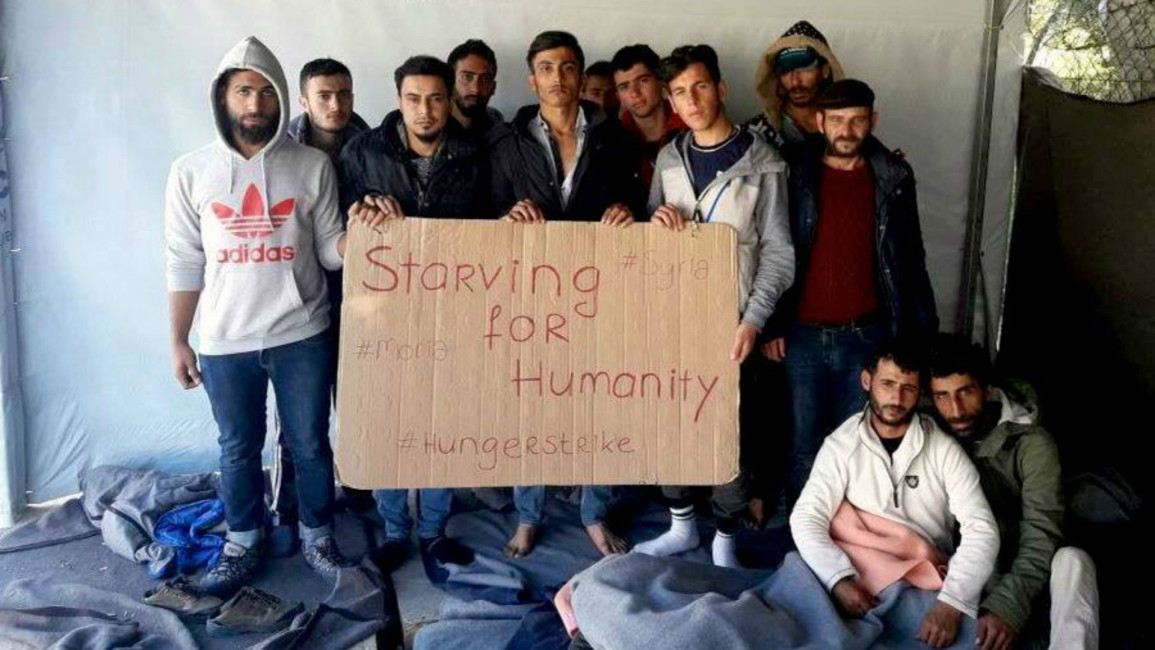#StarvingForHumanity: Syrian refugees launch hunger strike in Greek camp
Eleven Kurdish-Syrians and one Arab asylum seeker announced the hunger strike in the Moria camp on the Greek island of Lesbos after authorities failed to provide them with travel documents to continue their journey to mainland Greece.
Some of the protesters have been rejected entry onto the mainland and have been advised to return to Turkey, while others have been left without information surrounding their asylum progress.
“We are so tired. We are in pain. But we prefer to die instead of living without rights. Our request is very simple: to get our travel documents for the 12 people who are on hunger strike,” a statement said.
Four days into the strike, authorities and human rights organisations have failed to address the issues and demands raised by the protesters, and one hunger striker has been sent to hospital in critical condition after collapsing.
“I’ve been on the island for almost nine months. The main problem is we don’t know for how long we have to wait – if we knew it would be fine but I don’t know for how long,” Murad, a Syrian refugee who arrived on the island nine months ago said in a video posted on Facebook.
“I came with 75 people, 73 of them left and two of us are still here for no reason. When we ask about our files all they say is 'wait',” he added.
Refugees arriving to the Greek island camp after March 20 are to be held in centres set up on five Aegean islands, including Lesvos, and sent back if their asylum applications are not accepted, according to European Union deal with Turkey.
Eleven of the Kurdish-Syrians involved in the strike could be deported to Turkey – deemed a ‘safe country’ – where Kurds are systematically persecuted and repressed.
“We are already destroyed inside, we are hopeless, angry and sad but we are not going to stop until something really changes.



![Squad incumbent Summer Lee has won her district's Democratic primary. [Brooke Anderson/The New Arab]](/sites/default/files/styles/image_330x185/public/2024-04/413898031_1041031157158522_8195934720767720634_n%20%283%29.jpg?h=ff8c3fa3&itok=75Sx6fbL)